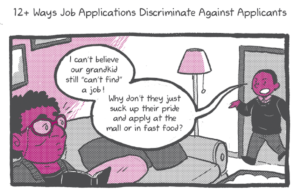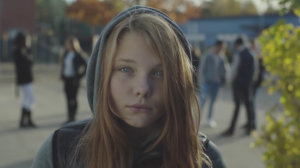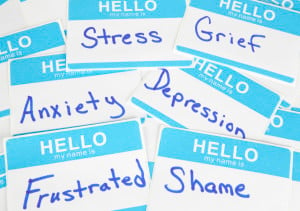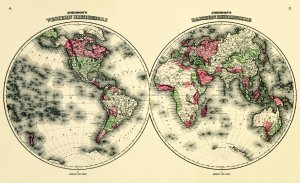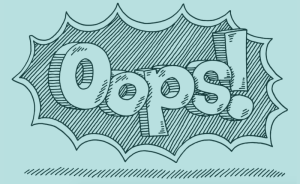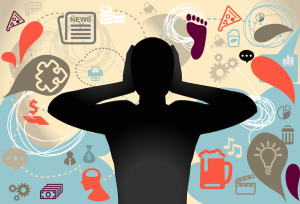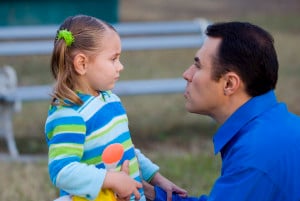When I was 18 years old, I listened to The Miseducation of Lauryn Hill on repeat.
My girlfriend and I would just sit in silence, listening to Lauryn unpack her brilliance, taking away something new each time.
So I was devastated when I heard the (now disproven) rumor that she told an MTV interviewer, “If I’d known White people were going to buy my last album, I never would have recorded it.”
I stopped listening to her because as a young, passionate liberal who “stood up to racism in all its forms,” I couldn’t in good conscience continue to support a “racist.”
Then, when a Latina woman I greatly admired suggested that it’s impossible for people of Color to be racist against White people, I lost it, furious at the perceived double standard.
And now, as debates about racism and a “post racial America” rage in my social media, I see these same frustrations in my fellow White people over and over.
We, as White folks, are upset that “everything is made to be about race these days!” We regularly claim that the “most racist people in the world are [insert group of people of Color].”
Many White people perceive that we’re under attack because people of Color and their White allies are angry with systems of racial oppression – and at us for our complicity in maintaining those systems. We get called names and told that our “White tears” don’t matter.
So we respond with how the dictionary defines racism as “poor treatment of or violence against people because of their race.”
And by that logic, we’re the real victims of racism! Right?
And if that’s our only context for understanding racism, then surely someone thinking I’m racist just because I’m White is racism!
Yet it seems that we’ve come to a place where the single worst thing that we can be called, the single insult that most enrages us, is suggestion that we might actually be racist.
And I get it – because I have said and thought every single one of those things.
But what troubles me most in all of this is that we are so invested in proving that people of Color are “more racist” than we are or that we’re not racist, we are more upset by allegations that we might be racist than about the very real ways that racism plays out in the society around us.
I see my fellow White people so wrapped up in defending the idea that systemic racism doesn’t exist that we are unable to empathize with the real pain caused to people of Color by racism, both interpersonal and systemic.
For goodness sake, even the McKinney police admitted Eric Casebolt was out of line in assaulting a young Black girl for legally observing his actions, yet White people in my life were trying so hard to explain how the officer was in the right and how this “isn’t racial.”
All of this leaves me wondering about the roots of our defensiveness to admitting that racism is alive and well.
Why are we so resistant to acknowledging the countless examples of our racial privilege?
What do we risk by actually empathizing with people of Color and acknowledging how racial oppression plays out in our society?
Almost every White person I know at least claims to live by a strong set of values, and I rarely meet people whose core values say that it’s good for people of Color to be treated as second class citizens.
I don’t think I personally know anyone who believes that their core values sanction their participation in the hurting of other people.
And yet both systemic and interpersonal racism hurt people. Racism destroys lives.
So how is it that we can live more fully into the values that so many of us claim to hold when we’re defensive about whether we might be benefitting from racism?
1. White People Must Choose to Extend Our Personal Values towards Racial Issues
Because otherwise, we continue to contribute to White supremacy.
When someone calls us as White people out for racist behavior or language, we are almost never being accused of being card-carrying members of the KKK.
Yet so many of us are stuck in a surface level, 1950s conception of racism where we can clearly identify it as wearing White hoods and burning crosses.
But even then, racism was far more complex and insidious.
The reason that so many people claim that people of Color can’t be racist is that racism is about more than individual attitudes that we hold.
Racism is about the ways that virtually all of the systems in which we live (economic, educational, judicial, medical, and so on) were created to serve White people (particularly White, cisgender, straight men) while oppressing people of Color.
And even with major reforms over time, this is still true.
So if we only see racism as flying the Confederate battle flag over a state capitol or as an individual racist gunman, it makes sense that we get so damn defensive when the topic of race and racism comes up. Few of us want to be associated with that blatant hate.
But to understand the issues of race and racism that are being tackled by anti-racist movements like #BlackLivesMatter, we White folks need to make sure we’re being clear about the difference between Whiteness (also sometimes called White supremacy) and White people.
One of my favorite authors on the topic, Dr. Zeus Leonardo, lays out this distinction well, noting that Whiteness is something created by wealthy Europeans that subsumes all light-skinned European ethnicities into one identity.
Why was Whiteness created? For social control: to allow wealthy White elites to unite poor and middle class Whites against people of Color.
Whiteness, then, refers to that system of social control and its institutions that were built to serve White wealth and power concentration.
White people, on the other hand, are individuals who have been caste into this racial hierarchy. We are not Whiteness, but we are inscribed with it from birth. As such, we face a choice.
Just as men can choose whether to align with feminism and work for gender equity, White people can choose whether to turn away from defending systems that are literally killing people of Color while we benefit.
And instead, we can choose to invest in racial justice.
To me, that is such an incredibly empowering and liberating realization!
As White people, we have agency about how we will engage with the racial world around us.
And yet so many of us, as I described above, do all we can to convince ourselves, and others, that racism cannot be real (except in the rare cases of a KKK rally). Why?
Well, because there are damn good reasons for us as White people to invest in Whiteness, to invest in those systems that tell us that racism isn’t real and that we aren’t privileged.
Some of those reasons are tangible, as we have real political and economic stakes in being defensive to racial justice movements. Others of those reasons are emotional, and as such, are far more terrifying to actually grapple with.
2. White People Benefit Materially from Racism
Therefore, most of us have an unacknowledged political and economic stake in maintaining White supremacy.
It can be really hard sometimes to feel like we get any sort of political or economic benefit from our racial identity when our lives feel pretty shitty.
I remember once when I had written an article about White privilege, my friend’s dad called him and railed about what I had to say, asking my buddy who works really hard at a carpet cleaning and installation company, “Do you feel privileged right now while you’re busting your ass to feed your family?”
We’re struggling with our mortgages. We’re struggling with relationship problems or divorce. We’re struggling with the other aspects of our identity that are marginalized or oppressed. So it’s hard to believe that there could be any sort of racialized wind at our back.
And I get that!
But benefitting from racist systems doesn’t mean that everything is magically easy for us. It just means that as hard as things are, they could always be worse.
We could face the daily onslaught of overt and covert racism that impedes people of Color on top of all of our struggles.
I could lay out statistic after statistic, article after article, book after book about how White people are privileged in almost every place on Earth that Europeans colonized (all but a handful of countries), but that will do no good if we’re not simply willing to listen.
It’s our defensiveness to understanding the racialized world around us that we must understand if we want to live in a way that better aligns with our values, the values of justice and equity so many of us hold.
After all, those values are in direct competition with our material realities.
If our children are more likely to go to college because they grew up surrounded by Whiteness, wouldn’t we want them to have that opportunity?
Or if we will be more likely to have a comfortable retirement enjoying state and federal parks if we ignore calls from Indigenous people to return land (both public and private), why would we join that movement?
Divesting from Whiteness means divesting from material realities that make our lives better at the expense of other people’s lives – and also at the expense of solidarity that could, eventually, raise the standard of living for all people, including us.
And that’s really scary to consider!
So to even consider divesting from those systems, we have to dig a little deeper.
3. White People Have an Emotional Stake in Denying White Supremacy
Because that way, we can avoid dealing with how we’re complicit in its pervasiveness.
Admitting that we’re acting in racist ways or supporting racist systems is terrifying. And it hurts.
Scarier still is doing the deep emotional reflection to understand the ways that we may be truly racist deep down.
And if you’re anything like me, I don’t like doing things that terrify me or that hurt.
So I have an emotional stake in coasting along with the status quo.
I have an emotional stake in reacting defensively to allegations that I have hurt a person of Color with my privileged actions.
I have an emotional stake in pretending that my equitable values are in alignment with the world I create for myself.
Because to admit that racism is real means that the world around me isn’t as I thought it was, and it means that I am living out of alignment with my values.
And that hurts deeply.
So is it any wonder that we fight tooth and nail to deny that racism could be at play in police killings?
Or that we disproportionately vote in ways that actually are against our self-interests (in an interesting contradiction to our economic and political stake) in order to enact policies that hurt people of Color?
Or that we are far more outraged by allegations of our own racism than by the everyday racism that destroys people’s lives?
We are living in a “culture of make believe.”
But living in this fantasy also comes at a tremendous emotional cost.
One of the most powerful of human capacities is our ability to empathize, to see ourselves in another human being even when we may have next to nothing in common outside of our humanity.
And when we defend racist systems and refuse to be self reflective about our complicity in them, we turn our back on that core, connecting aspect of what makes us human.
By investing in Whiteness, we turn our backs on our own humanity.
4. Working towards Racial Solidarity Means Being Vulnerable
Because that’s the only way for us to transform ourselves for the better.
My own investment in working for racial justice didn’t come from being presented with lists or statistics about my privilege. It came from being called upon by mentors, both people of Color and White people, to live more fully into my values.
They asked me to quiet myself and listen to the voice of people of Color who described devastation caused by the everyday interpersonal and systemic racism.
They challenged me to get in touch with my human capacity for empathy.
When I opened my heart to this empathy, it hurt tremendously, and it inspired me to change myself in hopes of transforming my community.
But even further, some of my most powerful transformation came when I was asked to frame my investment in justice not only through empathic concern (how racism hurts people I love) but also through recognizing what I lose by investing in Whiteness (how racism hurts me).
And I’m still answering that question.
But in my journey to understand what Whiteness costs me paired with my ever-evolving desire to be in more accountable solidarity, I’ve found that I am living a more spiritually-fulfilling life than I ever did before.
And that’s because I’ve chosen to live into my values.
All of us as White people are offered a choice, then. Will we choose to live into our values and into our human capacity for empathic concern? Or will we invest in the alluring benefits of Whiteness?
If we choose the former, then we have to resist our inclination to be defensive when talking about racism and our own complicity in its systems. We can’t pretend that we are simply “post racial.”
We have to commit to finding a third way, a way characterized by building accountable relationships across difference and striving for anti-racist solidarity.
And that solidarity is powerful and important. Over and over, we can hear people of Color asking us to set down our shields of defensiveness and call in our own people to change.
But we should also recognize that by allowing ourselves to get in touch with why we are defensive, we open the door to something more than solidarity.
We open the door to powerful self-transformation and to growth as people.
Because by investing in what makes us human and by working to live more fully into values of justice and equity, we invite positive change into our lives.
And in doing so, we set a powerful standard for other White people in our lives: our families, our friends, our colleagues, and, most importantly, the next generation of White people to inherit this flawed world in which we live.
[do_widget id=’text-101′]
Jamie Utt is the Founder and Director of Education at CivilSchools, a comprehensive bullying prevention program, a diversity and inclusion consultant, and sexual violence prevention educator based in Tucson, AZ. He is currently working toward his PhD in Teaching, Learning, and Sociocultural Studies at the University of Arizona with research interests in the role that White teacher’s racial identity plays in their teaching practice. Learn more about his work at his website here and follow him on Twitter @utt_jamie. Read his articles here and book him for speaking engagements.
Search our 3000+ articles!
Read our articles about:
Our online racial justice training
Used by hundreds of universities, non-profits, and businesses.
Click to learn more








